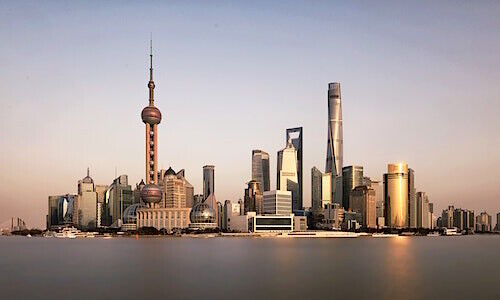Missed Trust Payments Trigger Alarms in China
A major state-backed trust firm in mainland China has missed payments on wealth management products sold to three Shanghai-listed companies. This will likely cause liquidity worries amid an ongoing economic slowdown.
Zhongrong International Trust missed payments for wealth management products sold to three Shanghai-listed companies, according to recent exchange filings.
Last Friday, carbon product manufacturer KBC said payments for 60 million yuan ($8.3 million) in principal and 4.3 million yuan in investment gains on two wealth management products due last week were missed. On the same day, Nacity Property Service Group reported missed payments of 30 million yuan in principal due last week.
Earlier this month, Xianheng International Science and Technology also said that Zhongrong did not make repayments on three products.
Shadow Banking
Based in Harbin, Zhongrong is a trust company which had around 629.3 billion yuan in assets under management as of end-2022, according to its annual report.
In mainland China, trust companies form part of the non-bank financial system – also known as shadow banking – to pool funds from retail or corporate investors to invest in real estate, stocks, bonds and commodities. They differ from banks in various ways such as wealth management product offerings with higher yields compared to deposits or the multi-asset nature of their exposure.
The industry shrunk from its peak in 2017 following a regulatory crackdown but remains significantly sizeable. According to Fitch ratings, the total value of wealth management products in mainland China fell 5 percent to 27.7 trillion yuan at the end of 2022.
Zhongzhi Enterprise Group
Spotlight is being placed on Zhongrong’s second largest shareholder (33 percent), Zhongzhi Enterprise Group. Its largest shareholder (37 percent) is Jingwei Textile Machinery, a subsidiary of state-backed China Textile Machinery Group.
Beijing-based Zhongzhi was founded in 1995 by Xie Zhikun, who died of a heart attack in 2021. The firm is a shadow banking giant with interests in trust companies, wealth management and private equity. In total, Zhongzhi manages about 1 trillion yuan in assets.
According to a «Bloomberg» report citing unnamed sources, the National Financial Regulatory Administration established a working group last month to review outstanding debt and risks at Zhongrong, adding that nearly half of the funds raised by the trust firm ended up at Zhongzhi or its affiliated units. The regulator is requiring Zhongrong to report future payment plans and disposable assets for funding payments.
Property Links?
It remains to be seen if the property market is the ultimate source of risk but this asset class is commonly one of the main beneficiaries of shadow banking funds.
According to Zhongrong, around 11 percent of its trust product assets were invested in the property market with the remaining allocated to infrastructure projects, financial institutions and stocks. This year, it is due to pay 39.5 billion yuan for 270 products, according to data provider Use Trust, with an average yield of nearly 6.9 percent.
Meanwhile, the property market has recently been hit by even more weakness as Country Garden, one of China’s biggest private homebuilders, failed to make payments to international investors on two bonds last week.



























